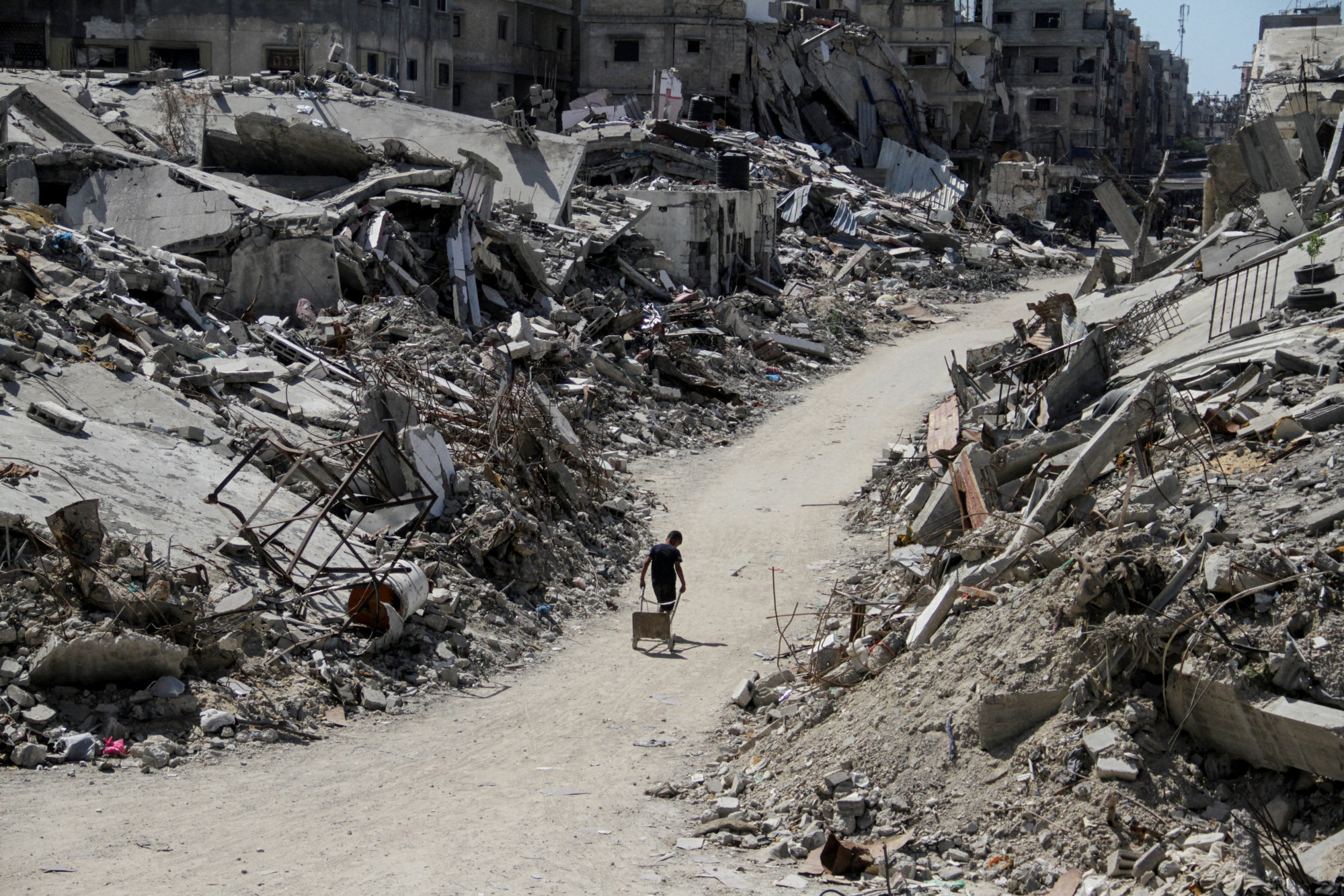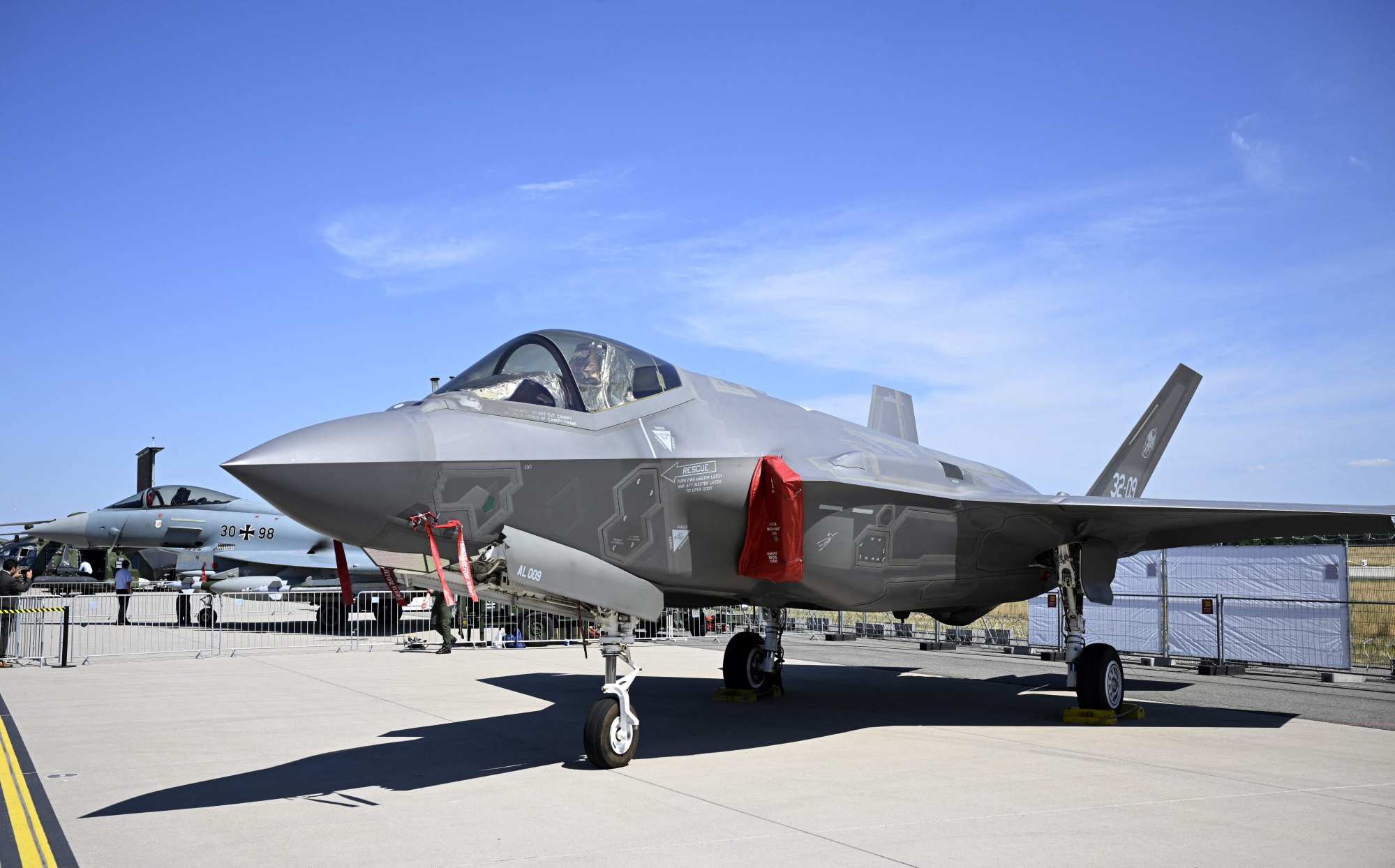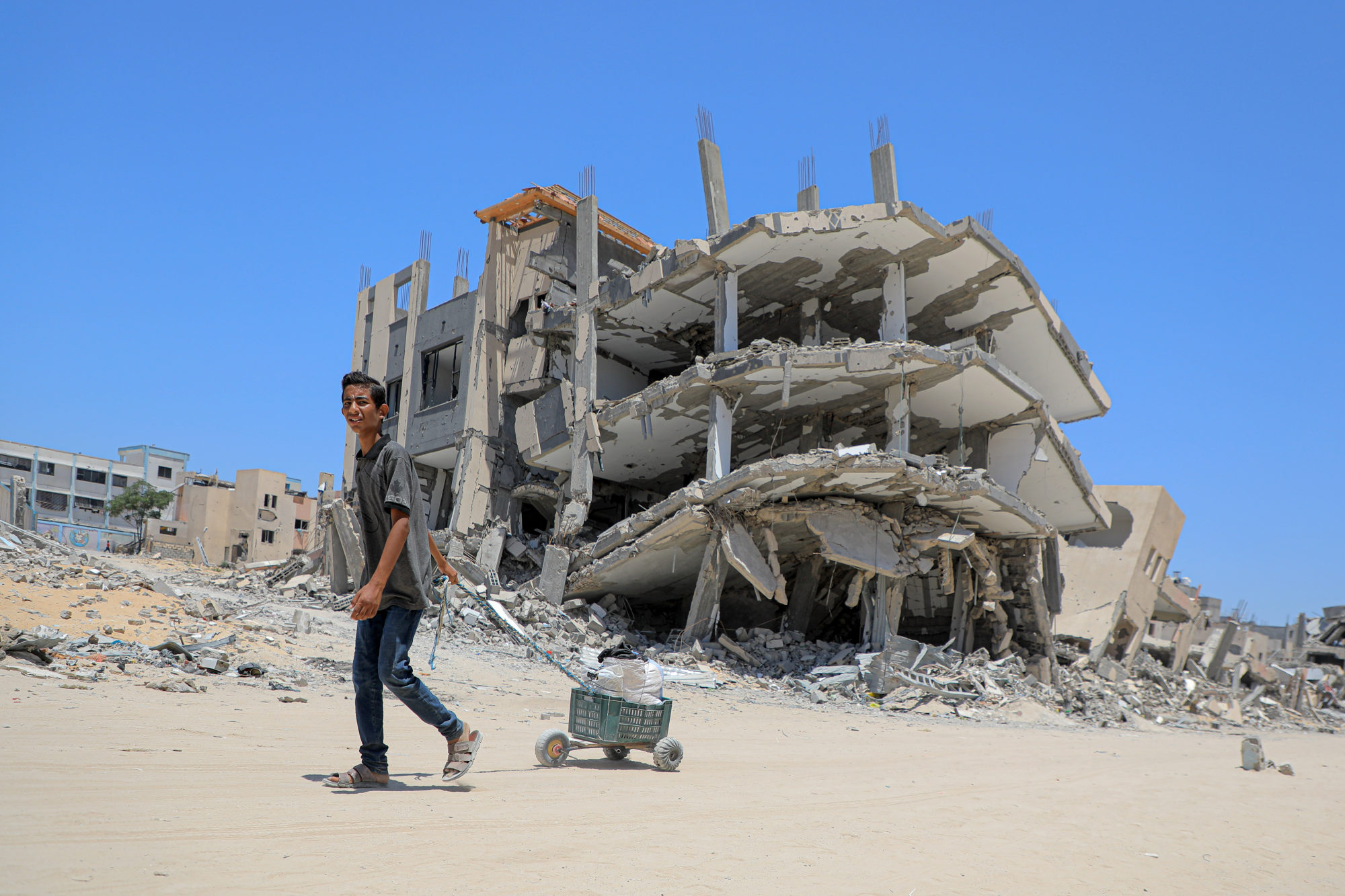For months, researchers, humanitarian groups, war protesters and Australia’s third-largest political party, the Australian Greens, have sought clarity over Australia’s exports of weapons and parts to Israel.

Australian defence officials said in senate hearings on June 5 and 6, they had granted eight new permits to export military equipment to Israel since the war began, although they said they were for Australian defence items that required repair by Israel manufacturers.
Since 2019, Australia has issued around 247 permits that relate to Israel, with 66 still active. They include exports of goods that require repair, as well as weapons and dual use goods.
The hearings also revealed Australia provides more than 70 critical components to the production of F-35 combat jets. Contracts to deal exports of weapon parts from more than 75 Australian companies into the Joint Strike Fighter global supply chain, which manufactures F-35 jets, were valued at roughly A$4.6 billion (US$4 billion).
“We are part of a consortium on the F-35 capability. That is all exported to a central repository in the US … it doesn’t relate specifically to the conflict in Israel,” said Hugh Jeffrey, deputy defence secretary of strategy, policy and industry.
“I think the question of whether or not the F-35 is being employed in the crisis in Israel is not material to the question of whether or not we grant an export permit.”
Jeffrey said, however, the permits were consistent with international legal obligations.
Since the war began, Canberra has denied supplying weapons directly to Israel, but former diplomats and academics said in an open letter to Canberra this week that those words were an “exercise in semantics”.
The senate hearing was Canberra’s clearest confirmation yet of how Australia is involved in the Gaza crisis.
This could implicate Australia in alleged war crimes, given that Israel is under investigation for genocide by the International Court of Justice, say anti-war advocates such as the AWPR.
The AWPR, which has raised concerns about the defence relationship between Australia and Israel, told This Week in Asia that Canberra had been inconsistent in its communication about exports to Israel and had not been transparent about defence-related decisions.
While Australia had failed to act to stop Israel’s war in Gaza, so far, it had not committed any war crimes, the group said.
Michelle Fahy, a researcher of the Australian arms industry, also said in local press during the hearings last week that Lockheed Martin – the world’s largest weapons manufacturer – had deleted from its website text that said Australia had supplied components to the F-35 fleet it is building.
Greens Senator David Shoebridge has accused the defence department of failing to ensure Australia met international responsibilities.
“There’s a moral vacuum here, and you don’t care,” he said during the senate hearings.
Canberra has accused the Greens of spreading misinformation about Australia’s involvement in the war.

In a radio interview this week, Defence Minister Richard Marles said the Greens’ allegations of Australia supplying weapons to Israel was a “total lie”.
He clarified that, of the eight new export permits to Israel, seven of them related to equipment that were worked on in Israel and returned to Australia and one permit involved the export of a non-lethal item.
In older permits, Australia also sent “dual use technology” parts to Israel, but they were not military equipment, Marles added.
When asked if Australia should take more responsibility over sending weapons parts to a “central pool”, Marles said Australia had its “eyes wide open” about its contribution to the F-35 supply chain, but that going down this path could get “complex”.
International law
Nations have obligations to “ensure respect” for international humanitarian law under the Geneva Conventions, said Lawrence Hill-Cawthorne, an associate professor of Law at the University of Bristol, in April.
In February, the United Nations said ignorance about where parts were used would not preclude countries that sent them from breaking humanitarian laws.

“Such transfers are prohibited even if the exporting State does not intend the arms to be used in violation of the law – or does not know with certainty that they would be used in such a way – as long as there is a clear risk,” the Office of the United Nations High Commissioner for Human Rights said in a statement.
The Arms Trade Treaty, which regulates the international trade of arms, also makes clear that parts and components of weapons are also considered weapons.


